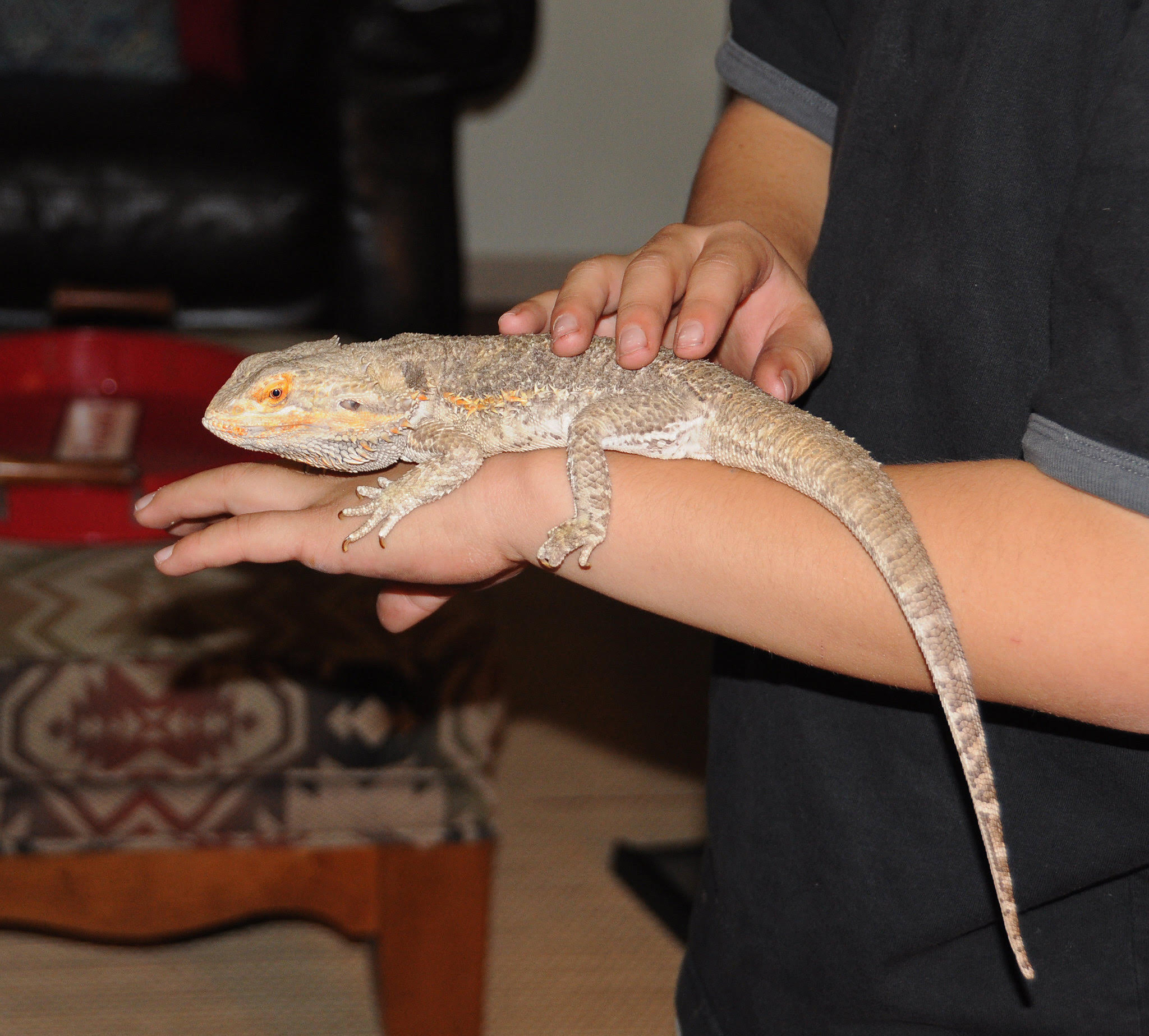
People who live with or handle pet bearded dragons are at continued risk for Salmonella infection, conclude the authors of a study on a 2024 outbreak published last week in Morbidity and Mortality Weekly Report.
The US Centers for Disease Control and Prevention (CDC) and federal and local health authorities investigated a 27-case, 14-state outbreak in 2024 caused by reptile-transmitted Salmonella Cotham. They also referenced a 2012-14 outbreak of 160 cases in 35 states caused by a genetically related strain.
Originally imported from Australia, bearded dragons have a "beard" of spikes on the throat that inflates in response to stimuli such as stress or fear.
Most infections in young children
In the 2024 outbreak, 72% of those sickened reported contact with a bearded dragon or lizard in their household or one they visited in the 7 days before symptom onset. Children younger than 5 years, particularly infants, accounted for 65% of the 26 confirmed cases; most had bearded dragons in the home but no direct contact, although they were exposed to animal living areas or a person with contaminated hands or clothing.
Caregivers [should] prevent young children from indirect reptile contact by restricting reptiles from roaming freely, separating reptiles and supplies from food preparation areas, and washing hands and changing clothes after handling reptiles and before holding infants.
Two of six parents who were re-interviewed said their reptiles were allowed to roam freely, and two reported washing baby bottles and reptile supplies in the same sink. No parents of young children knew that reptiles can transmit Salmonella. In total, 42% of patients with confirmed illness were hospitalized; hospitalization status was unknown for two patients.
Whole-genome sequencing of two bearded dragon specimens collected in 2024 and three from 2012-14 confirmed that they were related and that the rare strain continued to circulate among commercially sold bearded dragons.
The CDC worked with pet industry representatives to disseminate information about biosecurity best practices to bearded-dragon suppliers and retailers, including a common supplier identified in the traceback investigation.
CDC officials recommended that "caregivers prevent young children from indirect reptile contact by restricting reptiles from roaming freely, separating reptiles and supplies from food preparation areas, and washing hands and changing clothes after handling reptiles and before holding infants."

.jpg)








